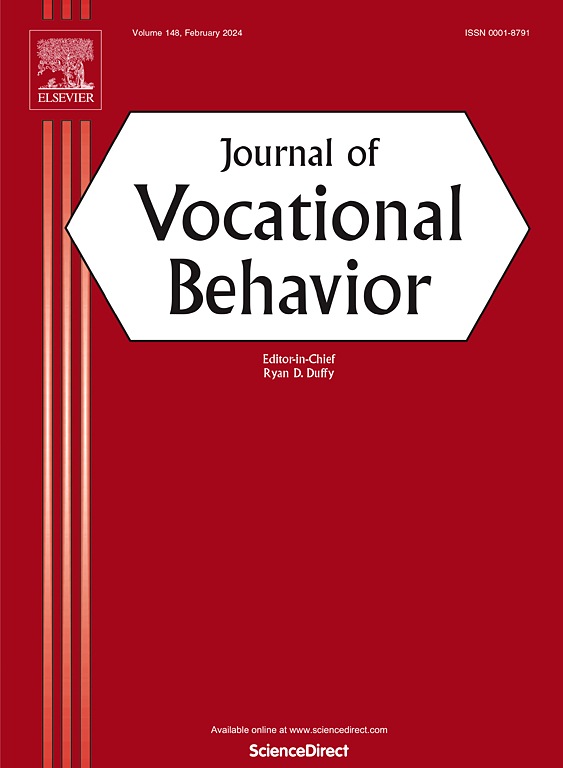Employee flourishing and moral obligation in extreme conditions
IF 5.2
1区 心理学
Q1 PSYCHOLOGY, APPLIED
引用次数: 0
Abstract
We extend the extant call for a flourishing perspective by examining dynamic processes involving moral obligations of organizations, work meaningfulness, organizational responsiveness, and enabling conditions and their effects on employee flourishing in four studies from an emerging economy. Through a mixed-study design, we qualitatively explore (Study 1: N = 146), perceptions of employees about the moral obligations, enabling conditions, and responsiveness of their organizations during an extreme condition. We then conduct (in Study 2) an experiment with employees (N = 63) from the Kumasi metropolis in Ghana. The results of a 2 (high and low moral obligation) × 2 (facilitative and inhibitive enabling conditions) between-subjects design show that employees in high moral obligation organizations with facilitative enabling conditions reported perceptions of better flourishing than those in the other conditions. In Study 3, cross-sectional (N = 112), we examine the mechanism and dynamics by which moral obligation influences employee flourishing. Study 4, a replication (N = 81), shows a pattern similar to that of Study 2 in the Accra metropolis in Ghana. Consistent with the human flourishing theory, we discuss implications for future research.
员工繁荣与极端条件下的道德义务
我们通过在一个新兴国家的三项研究中考察动态过程,包括组织的道德义务、工作意义、组织响应、有利条件及其对员工繁荣的影响,扩展了对繁荣观点的现有呼吁。通过混合研究设计,我们定性地探索(研究1:N = 146),在极端情况下,员工对道德义务、有利条件和组织反应能力的看法。然后,我们对来自加纳库马西大都市的员工(N = 63)进行了(在研究2中)实验。2(高道德义务和低道德义务) × 2(促进性和抑制性激励条件)受试者间设计的结果显示,在具有促进性激励条件的高道德义务组织中的员工比在其他条件下的员工报告了更好的繁荣感。在研究3中,横断面(N = 112),我们考察了道德义务影响员工繁荣的机制和动态。研究4是一项重复研究(N = 81),显示了与加纳阿克拉大都市的研究2相似的模式。与人类繁荣理论相一致,我们讨论了未来研究的意义。
本文章由计算机程序翻译,如有差异,请以英文原文为准。
求助全文
约1分钟内获得全文
求助全文
来源期刊

Journal of Vocational Behavior
PSYCHOLOGY, APPLIED-
CiteScore
13.10
自引率
5.40%
发文量
85
期刊介绍:
The Journal of Vocational Behavior publishes original empirical and theoretical articles offering unique insights into the realms of career choice, career development, and work adjustment across the lifespan. These contributions are not only valuable for academic exploration but also find applications in counseling and career development programs across diverse sectors such as colleges, universities, business, industry, government, and the military.
The primary focus of the journal centers on individual decision-making regarding work and careers, prioritizing investigations into personal career choices rather than organizational or employer-level variables. Example topics encompass a broad range, from initial career choices (e.g., choice of major, initial work or organization selection, organizational attraction) to the development of a career, work transitions, work-family management, and attitudes within the workplace (such as work commitment, multiple role management, and turnover).
 求助内容:
求助内容: 应助结果提醒方式:
应助结果提醒方式:


